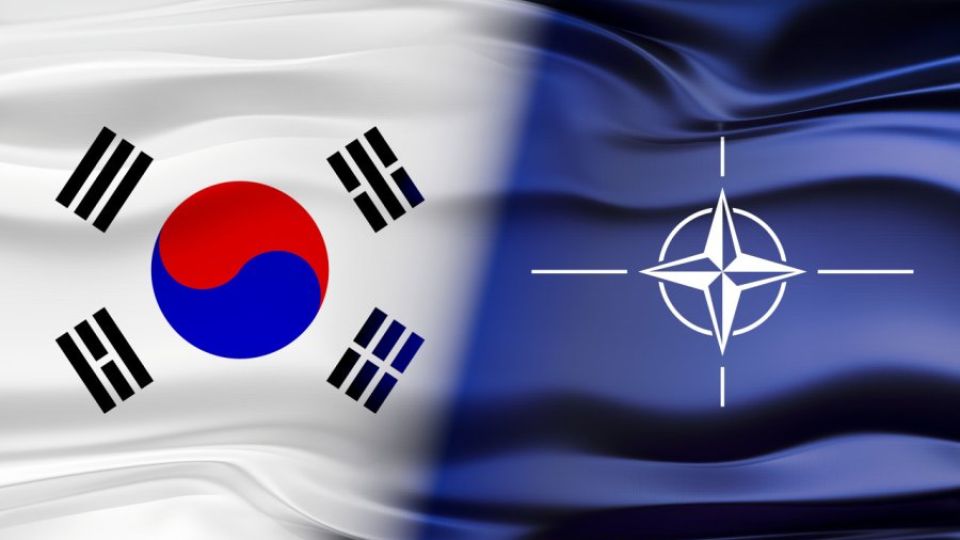February 15, 2023
SEOUL – South Korea and NATO held their first military staff-to-staff talks in Seoul to pave the way to strengthen military exchanges and cooperation, South Korea’s Joint Chiefs of Staff said Tuesday.
South Korea’s Director for Strategy and Plans Maj. Gen. Kim Su-kwang and Staff Maj. Gen. Francesco Diella, director of the Cooperative Security Division of the NATO International Military, participated as the chief delegates in the two days of meetings that began Monday.
Both sides discussed a wide range of issues, including procedures for and the direction of military cooperation, introduced a “strategic concept” to each other and assessed previous achievements in cooperation such as military training and exercises.
South Korea and NATO also committed to holding military talks annually. The second meeting is to be held in Brussels next year.
JCS spokesperson Col. Lee Sung-jun explained that South Korea’s provision of lethal weapons to Ukraine was not part of the bilateral discussion, underscoring that the implication of the first meeting was to lay the foundation for military cooperation and regularized staff-to-staff talks.
Both sides agreed to establish a military-to-military consultative body to “enhance the understanding of the security situation on the Korean Peninsula and strengthen mutual cooperation and exchanges,” the JCS explained.
The two shared the view on the necessity on the occasion of the South Korean JCS chairman’s visit to NATO headquarters in Brussels in November 2021 and NATO Military Committee Chair Adm. Rob Bauer’s rare trip to Seoul in April 2022.
South Korea and NATO notably also held two consecutive military meetings for around two weeks. South Korean Defense Minister Lee Jong-sup and NATO Secretary-General Jens Stoltenberg met in Seoul in late January and committed to achieving substantial outcomes in various fields, including cybersecurity and interoperability, in which South Korea and NATO have pursued active cooperation.

Maj. Gen. Kim Su-kwang (C), head of the directorate of strategic planning at the Joint Chiefs of Staff (JCS), and Lt. Gen. Francesco Diella (5th from L), director of NATO`s cooperative security division, take a group photo as they take part in military staff talks between the two sides on Feb. 13, 2023, in this photo provided by the Joint Chiefs of Staff.
Why does US-led NATO seek cooperation?
Experts took note that the implications of the meeting should be understood in the context that the US-led NATO alliance seeks to step up cooperation with Asian-Pacific countries to check China’s growing influence in the region.
For instance, the leaders of four Asia-Pacific countries — South Korea, Australia, Japan and New Zealand — were invited to take part in the NATO summit in June 2022 for the first time as partners. At the summit, the US-led NATO adopted a new strategic concept for the next 10 years that highlights the importance of the Indo-Pacific region and stipulates NATO’s commitment to addressing the “systemic challenges” posed by China to Euro-Atlantic security.
NATO’s move is also in line with the US’ “integrated deterrence,” which is the core of the Biden administration’s National Defense Strategy. The new model aims to socialize the US allies and partners for them to work together effectively to deter China.
“The essence of the US’ integrated deterrence is to federate Indo-Pacific allies and NATO members. Therefore, the US expects that NATO will strengthen cooperation with South Korea, Australia and Japan in the Indo-Pacific region and seeks to transform the framework of the US alliance based on the concept,” Park told The Korea Herald.
“Against that backdrop, the agreement between NATO and South Korea to regularize military-to-military consultations has implications.”
Challenges and opportunities for S. Korea
Experts said the enhanced military and security cooperation between South Korea and NATO would bring both challenges and opportunities for South Korea.
Chun Chae-sung, a professor at Seoul National University’s department of political science and international relations, said the meeting would serve as a platform for NATO and South Korea to discuss how to develop and flesh out their global partnership.
During the meeting, NATO and South Korea had a concrete discussion on how to further develop and complete the Individually Tailored Partnership Program, or ITPP, which is an updated framework covering cooperation in emerging fields including cyber and new technologies and the defense industry, a South Korean military official confirmed to The Korea Herald.
“South Korea can play the role in advancing stability and security in the Indo-Pacific in cooperation with Europe, given that NATO has underscored the connectivity of Europe and the Indo-Pacific, defining China as a systemic challenge and the Indo-Pacific strategy has significance for South Korea,” Chun said.
“Furthermore, the meeting provides an opportunity for South Korea to make contributions to maintaining international security at a juncture when rules-based order has been undermined by the war in Ukraine and other phenomena.”
Park pointed out that South Korea’s steps to bolster military cooperation with the NATO alliance — which consists of 30 member states from North America and Europe — by themselves will bolster “physical and psychological dimensions of its deterrence against North Korea.”
Cooperation in the fields of cyber and space security will also contribute to strengthening South Korea’s deterrence and readiness posture against escalating cyber and missile threats from North Korea.
“But at the same time, South Korea must manage the accompanying challenges, as strengthening cooperation with NATO would be seen as South Korea taking steps toward enhancing engagement in the moves by the US and NATO to contain China,” Park said.
Chun also underscored that South Korea should reinforce its own established position on security issues as a NATO partner and US ally, while elucidating that South Korea has confronted different security environments and challenges especially as compared to the US’ other Asian allies.


